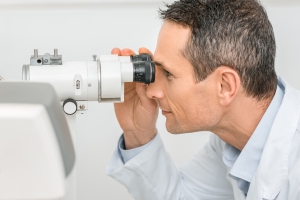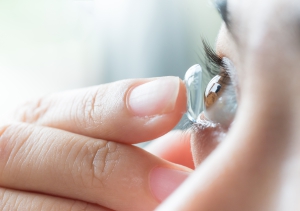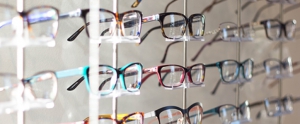 Atropine drop treatment
Atropine drop treatment
In high concentrations, Atropine Drops are commonly used to dilate the pupils. However, research has shown that very low concentrations of atropine (0.05%) slows the progression of nearsightedness without increasing pupil size or dramatically decreasing near vision.
 Daytime Soft Multifocal Contact Lenses
Daytime Soft Multifocal Contact Lenses
Soft, multifocal contact lenses are worn during the day and removed before sleep. They not only correct distance vision, but near and intermediate vision as well. Research has shown that by adjusting how the eyes focus for all distances, this method can slow the progression of eye elongation, which leads to myopia. Consistent and proper care of your contact lenses is imperative. Ensure you dispose of them properly, using a clean case and new solution each time.
 Day time multifocal glasses
Day time multifocal glasses
Much like the soft, multifocal contact lenses, multifocal glasses also correct for near, intermediate, and distance vision. Glasses may be worn on a part-time or full-time basis and have proven to slow the progression of eye elongation as well.
Orthokeratology using nighttime Paragon Corneal Refractive Therapy (CRT) lenses
Orthokeratology (Ortho-K) entails the use of rigid, specially designed contact lenses worn overnight. This reduces the lengthening of the eyeball and temporarily corrects myopia, leaving corrective lenses or glasses to go unneeded during the day. Though the results are not permanent, retainer contact lenses can be used periodically to maintain vision improvements.
 Daytime Soft Multifocal Contact Lenses
Daytime Soft Multifocal Contact Lenses Day time multifocal glasses
Day time multifocal glasses